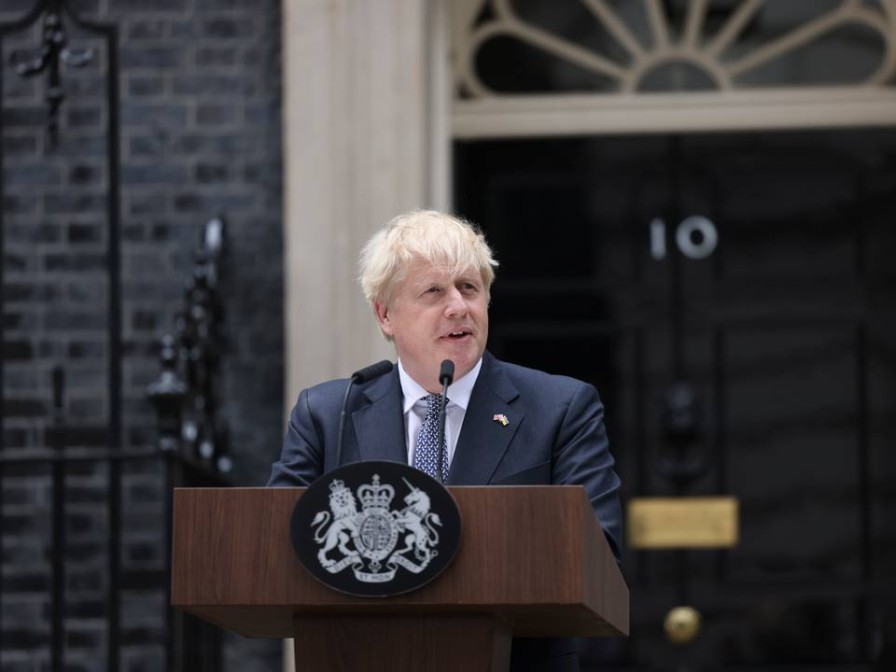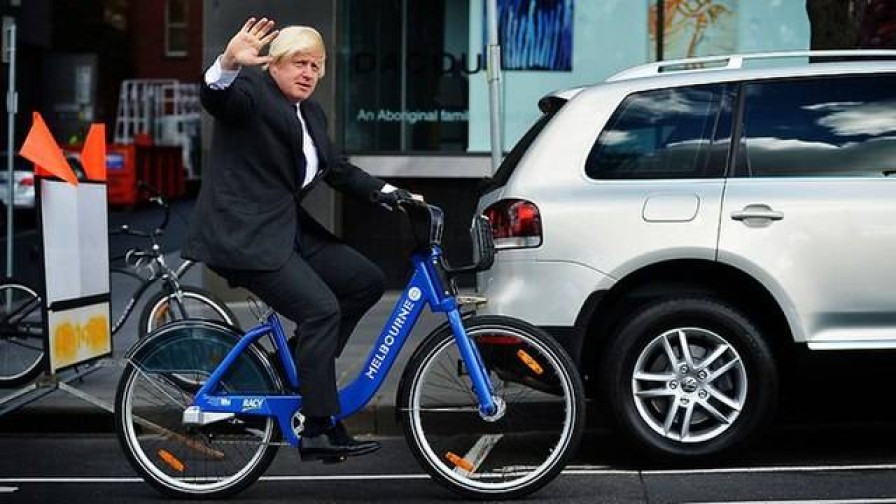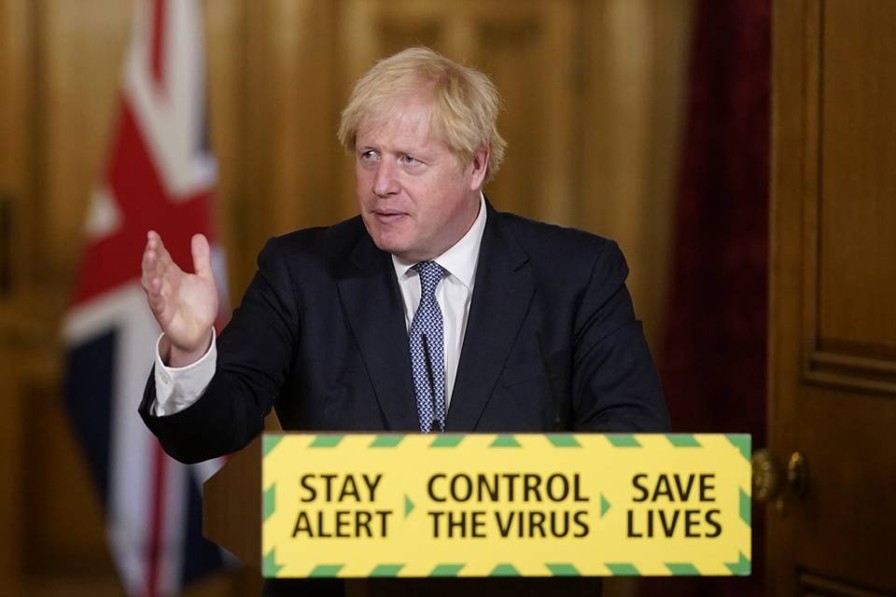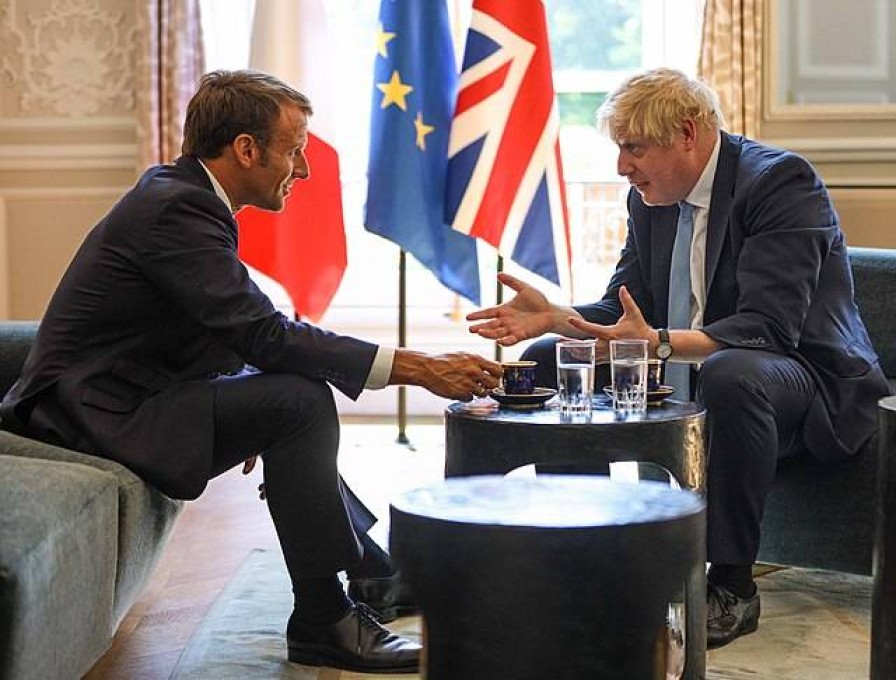Boris: Is Britain ready for his comeback?
Former UK prime minister Johnson charts another way forward in his memoir.
Unleashed, by Boris Johnson.
Former UK prime minister Johnson charts another way forward in his memoir.
Unleashed, by Boris Johnson.
Political popularity can be as fickle as voters’ knowledge of their own best interests. For prime ministers, the rise and fall can be even faster if politicians on their own side have the say.
The case of Boris Johnson is instructive. He was overwhelmingly selected leader of the British Conservative Party in a poll of its membership, rather than just its elected members of parliament, to succeed the hapless Theresa May.
She had resigned after leading the party to an electoral loss of its majority in the wake of the Brexit referendum. She and most of the party’s MPs had backed Remain, putting them out of step with public opinion outside of London; places such as Wales and northern England.
Johnson – the country’s most popular politician and mononymously known as Boris – had steered the ‘Leave’ campaign and was the obvious choice to “get Brexit done” against the forces of parliament, the bureaucracy, the courts, and the business establishment.
Against the odds, he succeeded in giving the public what they wanted. He led the Conservatives to a landslide victory in the December 2019 general election, scooping up more votes than any party leader since Margaret Thatcher in 1979.
The party gained 80 seats in the House of Commons, and the post-Brexit government could look forward to a full five-year term. It had breached the so-called Red Wall, winning previously safe Labour seats in the de-industrialising north, which had embraced the Brexit rhetoric.

Boris Johnson announces his resignation on July 7, 2022.
But, 20 months after that victory, Johnson’s dream of “levelling up” Britain outside of London and its prosperous environs was over. Faced with resignations from his senior ministers, and fallout from the Covid-19 pandemic, he surrendered to his many enemies.
Typically, the Eton and Oxford-educated Johnson quotes William Shakespeare’s version of Julius Caesar’s dying words in Greek – kai su teknon (“you too, child”). “If Caesar has 23 stab wounds, I ended up with 62,” was a reference to ministers Sajid Javid and Rishi Sunak, plus 60 other MPs.
As in Rome, the new regime didn’t last, losing to a Labour landslide that produced a 174-seat majority, though it was the smallest vote share of any majority government since record-keeping began in 1830.
So far, Labour under Sir Keir Starmer looks set for a full term to 2029 and has already demonstrated an ability to govern without attracting the scandals and leadership changes that marred 14 years of Conservative rule.
However, the party remains in dire straits, with Nigel Farage’s anti-immigrant Reform Party wooing many of those former Labour voters who switched to Johnson but failed to endorse Sunak and his fellow usurpers. It has prompted talk, even in serious establishment media such as the Financial Times and The Economist, of a political comeback.
Of course, no commentator thinks this would be a good idea, unless you wish the worst for the Tories. One suggested that approaching 61 on June 19, and with four children under six, Johnson has more than a handful for someone of his age. As an accomplished author, journalist, and public speaker, he would also earn more staying out of politics.

Boris Johnson was a cycling advocate as mayor of London.
He turned out his memoir, Unleashed, in double-quick time for a retired politician and, late last year, added a speaking tour Down Under. At nearly 800 pages, it is gargantuan but highly readable. It covers all his political life from age 40, when – as editor of The Spectator and an MP – he decided to run for the mayoralty of London.
He was fired from The Spectator in 2005 and, three years later, in 2008, was elected mayor, defeating incumbent ‘Red’ Ken Livingstone. It meant resigning from the House of Commons. Johnson was triumphantly re-elected for a second four-year term but decided against a third.
Instead, he returned to parliament in 2015 and was soon fronting the Leave campaign in the 2016 Brexit referendum. He had his first taste of betrayal when his close Brexit campaigner, Michael Gove, also decided to run for the party leadership. (Ironically, Gove was the Brutus to Johnson’s Caesar, and is now editor of The Spectator.)
His leadership hopes dashed, Johnson had to settle for foreign secretary under May, a post where he excelled at being, in his words, a “prize gaffe-merchant”. Though he might lack a reputation for competence, Johnson has sound instincts for summing up people and policies.
He describes May as “old grumpyknickers” and accuses her of “school marmy self-righteousness”. He quit her Cabinet because of her “surrender” to the devilish forces of the Europeans, who did everything they could to make Brexit as punishing as possible to the British public who voted for it.
These are some of the best chapters, with Johnson riding high from defying a Supreme Court ruling against proroguing parliament and forcing a snap election to gain public approval for the agonisingly drawn-out Brexit agreement.

Boris Johnson at a media conference during the Covid-19 pandemic.
He reveals how, during the Covid-19 pandemic, he planned a mission to seize five million doses held captive in a Dutch warehouse of the vaccine that he, more than any other European leader, had pushed through its approval stages.
The mission did not go ahead, but it confirmed Johnson's strongest suspicions toward the European leaders, particularly France’s Emmanuel Macron, whom he admired personally, though this was not reciprocated. They were wrong about Brexit and Covid, and about Russia and Ukraine.
As the author of a bestselling biography about Winston Churchill, Johnson was knowledgeable about history. France and Germany were soft on President Vladimir Putin, doubting his intentions. Johnson last spoke with Putin in January 2022, describing the conversation as “peculiar and ambiguous”.
Johnson couldn’t tell what Putin would do and was none the wiser after going to Kyiv a week before the invasion. But Johnson was convinced an invasion would happen after meeting the Five Eyes partners, including New Zealand, at the annual Munich Security Council on February 18, just days before Putin proceeded.
Johnson’s immediate pledge of military support to President Volodymyr Zelensky was genuine and, in three years' hindsight, is more deserving of praise than the reluctance of the Europeans to give Ukraine a better chance of resistance at a stage when the Russians could have been turned back.
Revenge of a sort was achieved against Macron when at the G7 Summit at Calis Bay, Cornwall, in June 2021, Britain jointly formed the Aukus defence alliance on condition Australia dump its diesel submarine contract with France and opt for nuclear ones from the US.

French President Emmanuel Macron resisted Boris Johnson’s Brexit campaign.
Johnson has words of advice for all embattled democratic leaders who face constant criticism at home: go on a state visit to India, which he describes as “balm for the soul”. Like Christopher Luxon, who has followed this advice, a British prime minister has the disadvantage of a fully state-paid health service that is a perennial political liability.
While other countries have resolved this insatiable beast by opting for private schemes, Britain has continued with its National Health Service, thus providing easy grievance pickings for a hostile media.
As Johnson says: “Big international trips are great, but all politics is local.” Indeed, it was ‘local politics’ that brought his downfall – Covid-19 scandals of partying during lockdowns. His departure from office, over the appointment of a deputy chief whip, ended his vision of a reinvigorated Global Britain.
This promised a country where all parts were linked by an infrastructure that “levelled up” its major cities to the capital in a way France and Germany have done. It also depicted a Britain on the global stage that would encourage the Commonwealth, particularly its African members, to side with Western freedom rather than fall victim to the bribes of Russia and China.
It’s an unfinished agenda, and not likely to be followed by a Labour government. But, despite the likely public appeal of a Boris comeback, for all his weaknesses, this book may be his best legacy. It’s a rewarding read for anyone interested in politics.
Unleashed, by Boris Johnson (William Collins).
Nevil Gibson is a former editor at large for NBR. He has contributed film and book reviews to various publications.
This is supplied content and not paid for by NBR.
Sign up to get the latest stories and insights delivered to your inbox – free, every day.